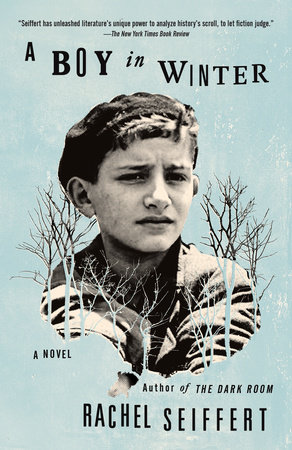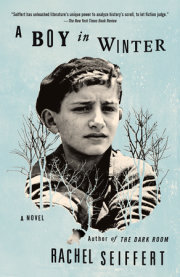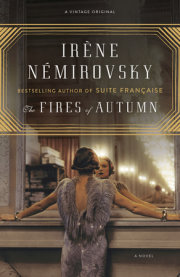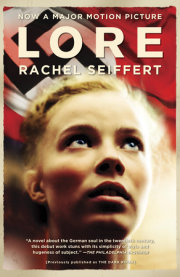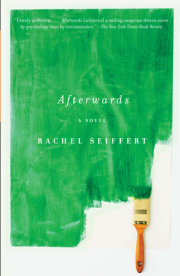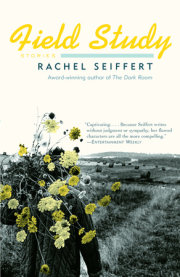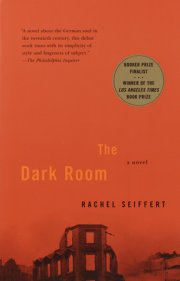1
He is out and running in the first grey of morning.
Ducked and noiseless, hurrying through the fog drifts with his brother just behind him; feeling the tug of his small fingers twisted in a fistful of his jerkin, crossing the cobbles of the empty town streets, just as day is breaking.
Already they have made it past the railway station, the distillery and the cooper’s yard, and then all along the silent length of the market street. Unseen, unheard—at least as yet.
When they reach the old church at the corner, the boy stops, pulling his young brother close, pressing both of them to the stone walls and listening a moment.
He hears nothing and no one; no sounds of movement. The boy’s darting eyes see no lamplight behind the curtains, only shutters drawn across the windows. They have been flitting from street to street and hiding, but the boy sees no place here they can slip inside. The fog hangs damp between the houses, and along the winding street before him, shrouding the low roofs and the lane mouths, the huddle of timbered house fronts. At least there is no one here yet to find them.
Soon, he thinks.
It will come soon now. Didn’t the schoolmaster say so?
His brother tugs at his fingers, holding up his arms to be lifted, and the boy pulls him onto his back to carry him; still cautious and casting looks about himself, but picking up his pace too. They left the house in darkness, only now the low clouds are paling, and he feels the day and its dangers drawing nearer.
He feels his brother shivering too, clutched to his shoulders, the short night’s bed- warmth long out of him. But it is better they do this. Better they make for the old schoolmaster’s lodgings. They still have more than half the town to cross, but even so: the boy thinks the old schoolmaster will know—who they can turn to, or the best place to lie low.
Then comes the flare of headlamps, a sudden glare in the fog beyond them; the crunch of tyres, of heavy vehicles halting on flagstones.
His brother grips him, small fists tight and fearful, and then already the boy is turning, already he is running, making for the shelter of one of the town’s many alleyways—even before he hears the rumbling of all the many vehicles following.
Otto Pohl wakes to the noise of a door slam. One truck door, then another, below his boarding- house window: loud reports echoing across the town square beyond his half- drawn curtains.
He must have left them half drawn last night, too weary and chilled to notice. Still fogged with sleep, for a short time all Pohl can see is the leaded squares above his bedpost, framing the town- hall clock and schoolhouse, squat in the autumn mist; this squat and damp place he’s been posted.
“Zeigt euch!” “Pokazhit'sya!” Is it German? Pohl thinks he hears Ukrainian shouted. But his foremen and workers are all quartered well beyond here, out in open country, and it is too early to be waking, surely. The grey outside is a before- dawn kind, and he has not slept well since he arrived here; Pohl has not been able, and he needs to rest. There is that shouting again.
“Mach schon!” Shrill and coarse.
Some fool out there is playing at soldiers. Pohl pulls the blankets higher around his shoulders: he will pay them no regard.
Who can have any regard for what soldiers do? For armies? he asks his Dorle. Although she is miles from here.
His wife is far away in Münster, but Pohl talks to her most mornings. Silently, inwardly, he turns his thoughts homeward, seeking comfort. Thinking of the sound of her, somewhere in the house beyond him; of rising to find her buttoning her coat at the hallway mirror, tucking her curls under the firm hold of her hat brim, then pulling out just enough of them as the bells sound the first service. Or waiting in the pews with their small daughter while she takes communion, before walking home again, arm in arm through the Sunday
Altstadt quiet.
But now more trucks are arriving, loud below his window. And although Pohl has his covers pulled against them, he is awake. Thoughts of home can’t block them out. Or that shouting either.
“Ihr sollt euch zeigen!” Too loud to ignore, it has Pohl confounded; it has him disordered, sitting up, pulling on his shirt. He can’t find his glasses. He has to get up to feel for them: on the desk at his bedside, in his engineering corps trousers hanging on the chair back; and all the while it continues, this bellowing and ordering, this ungodly noise at this ungodly hour of the morning.
Pohl hears dull thuds falling as he fumbles down the unlit stairwell. Are they hammer blows? Discharges? He can only half make them out through the thick boarding- house walls as he reaches the foot of the staircase, searching his tunic pockets, still looking for his glasses.
The stoves are all dark, and there is no one in the kitchen. Up even before the housemaid, Pohl has the out- of- sorts feeling this day has started far too early; it has started all wrong somehow.
Stooping at the window beside the low front entrance, he finds his glasses, finally, and hooks them over his ears, peering across to the town hall, looking for the clock, sure it has missed its hourly strike—or is he the one who has missed it?
What he sees out there brings him up short.
Soldiers. On the town square. Field- grey uniforms:
Wehrmacht in the fog.
It is not the first time he’s seen field grey here. Although he’s told Dorle the territory is secure now.
It has been secured for rebuilding; they are done with their Blitzkrieg,
I can promise you this much. Pohl is careful with his words to her; in his weekly letters, of course, because—the times being what they are—heaven knows who might read them; but also in his daily mumbled thoughts and reports, because Pohl feels Dorle deserves this care—she would hate so much of what he sees here.
The SS convoys, for one thing.
Copyright © 2017 by Rachel Seiffert. All rights reserved. No part of this excerpt may be reproduced or reprinted without permission in writing from the publisher.

